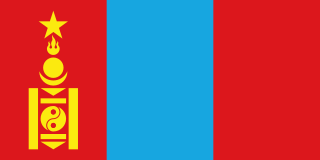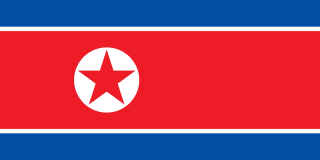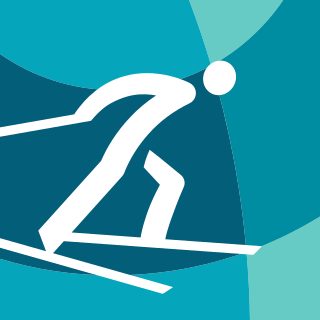
The Winter Olympic Games, also known as the Winter Olympics, is a major international multi-sport event held once every four years for sports practiced on snow and ice. The first Winter Olympic Games, the 1924 Winter Olympics, were held in Chamonix, France. The modern Olympic Games were inspired by the ancient Olympic Games, which were held in Olympia, Greece, from 776 BCE to 394 CE. The Baron Pierre de Coubertin of France founded the International Olympic Committee (IOC) 1,500 years later in 1894, leading to the first modern Summer Olympic Games in Athens, Greece in 1896. The IOC is the governing body of the Olympic Movement, with the Olympic Charter defining its structure and authority. The original five Winter Olympic Sports were bobsleigh, curling, ice hockey, Nordic skiing, and skating. The Games were held every four years from 1924 to 1936, interrupted in 1940 and 1944 by World War II, and resumed in 1948. Until 1992, the Summer Olympic Games and the Winter Olympic Games were held in the same year. A decision to change this was made in 1986, when during the 91st International Olympic Committee session, IOC members decided to alternate the Summer Olympic Games and the Winter Olympic Games on separate four-year cycles in even-numbered years. Also, at that same congress it was decided that 1992 Winter Olympics would be the last to be held in the same year as the Summer Games and that to change the rotation, the games that would be held in 1996 would be brought forward by two years, being scheduled to 1994. After those games, the next were to be held in 1998 when the four-year Olympic Cycle resumed.

The 1988 Summer Olympics, officially the Games of the XXIV Olympiad and officially branded as Seoul 1988, were an international multi-sport event held from 17 September to 2 October 1988 in Seoul, South Korea. 159 nations were represented at the games by a total of 8,391 athletes. 237 events were held and 27,221 volunteers helped to prepare the Olympics.

The 1960 Winter Olympics were a winter multi-sport event held from February 18 to 28, 1960, at the Squaw Valley Resort in Squaw Valley, California, United States. The resort was chosen to host the Games at the 1956 meeting of the International Olympic Committee (IOC). Squaw Valley was an undeveloped resort in 1955, so the infrastructure and all of the venues were built between 1956 and 1960 at a cost of US$80,000,000. The layout was designed to be intimate, allowing spectators and competitors to reach most of the venues on foot.

The 1964 Winter Olympics, officially known as the IX Olympic Winter Games and commonly known as Innsbruck 1964, were a winter multi-sport event which was celebrated in Innsbruck, Austria, from January 29 to February 9, 1964. The city was already an Olympic candidate, unsuccessfully bidding to host the 1960 Games. Innsbruck won the 1964 Games bid, defeating the cities of Calgary in Canada and Lahti in Finland. The sports venues, many of which were built for the Games, were located within a radius of 20 km (12 mi) around Innsbruck. The Games included 1,091 athletes from 36 nations, which was a record for the Winter Games at the time. Athletes participated in six sports and ten disciplines which bring together a total of thirty-four official events, seven more than the 1960 Winter Olympic Games. The luge made its debut on the Olympic program. Three Asian nations made their Winter Games debut: North Korea, India and Mongolia.

The 1964 Summer Olympics, officially known as the Games of the XVIII Olympiad, and commonly known as Tokyo 1964, were an international multi-sport event held in Tokyo, Japan, from 9 to 24 October. A total of 5,151 athletes representing 93 National Olympic Committees (NOCs) participated. The games featured 163 events across 19 sports and 24 disciplines. Two new sports were introduced to the Summer Olympic Games program in Tokyo: judo and volleyball. The inclusion of volleyball marked the first time that a women's team sport had been introduced.

North Korea competed as the Democratic People's Republic of Korea at the 1992 Summer Olympics in Barcelona, Spain. It was the nation's first appearance in twelve years at the Summer Games due to its boycotting the 1984 Summer Olympics in Los Angeles, California and the 1988 Summer Olympics in Seoul. 64 competitors, 36 men and 28 women, took part in 53 events in 12 sports.

South Korea has traditional sports of its own, as well as sports from different cultures and countries.

South Korea, as Republic of Korea, competed at the 1992 Winter Olympics in Albertville, France.

South Korea, as Republic of Korea, competed at the 1994 Winter Olympics in Lillehammer, Norway.

South Korea, as Republic of Korea, competed at the 1998 Winter Olympics in Nagano, Japan.

Mongolia competed in the Winter Olympic Games for the first time at the 1964 Winter Olympics in Innsbruck, Austria.

North Korea competed as the Democratic People's Republic of Korea at the 1984 Winter Olympics in Sarajevo, Yugoslavia.

North Korea competed as the Democratic People's Republic of Korea at the 1988 Winter Olympics in Calgary, Alberta, Canada.

North Korea competed as the Democratic People's Republic of Korea at the 1992 Winter Olympics in Albertville, France.

North Korea competed as the Democratic People's Republic of Korea at the 1998 Winter Olympics in Nagano, Japan.

The Democratic People's Republic of Korea first participated at the Olympic Games in 1964. The National Olympic Committee for North Korea is the Olympic Committee of the Democratic People's Republic of Korea, and was created in 1953 and recognized in 1957.
Speed skating at the 2010 Winter Olympics was held at the Richmond Olympic Oval, Richmond, British Columbia, between 13 and 27 February 2010.

South Korea competed at the 2018 Winter Olympics in Pyeongchang, from 9 to 25 February 2018, as the host nation. It was represented by 122 competitors[a] in all 15 disciplines.

Cross-country skiing at the 2018 Winter Olympics was held at the Alpensia Cross-Country Skiing Centre in Pyeongchang, South Korea. The twelve events took place between 10 and 25 February 2018.

North Korea competed in the 2018 Winter Olympics in Pyeongchang, South Korea. Pair skaters Ryom Tae-ok and Kim Ju-sik qualified for the Games, but the North Korean National Olympic Committee failed to enter them by the 30 October 2017 deadline. On 9 January 2018, North Korea agreed in negotiations with South Korea to send both athletes and a delegation to the Winter Olympics.













